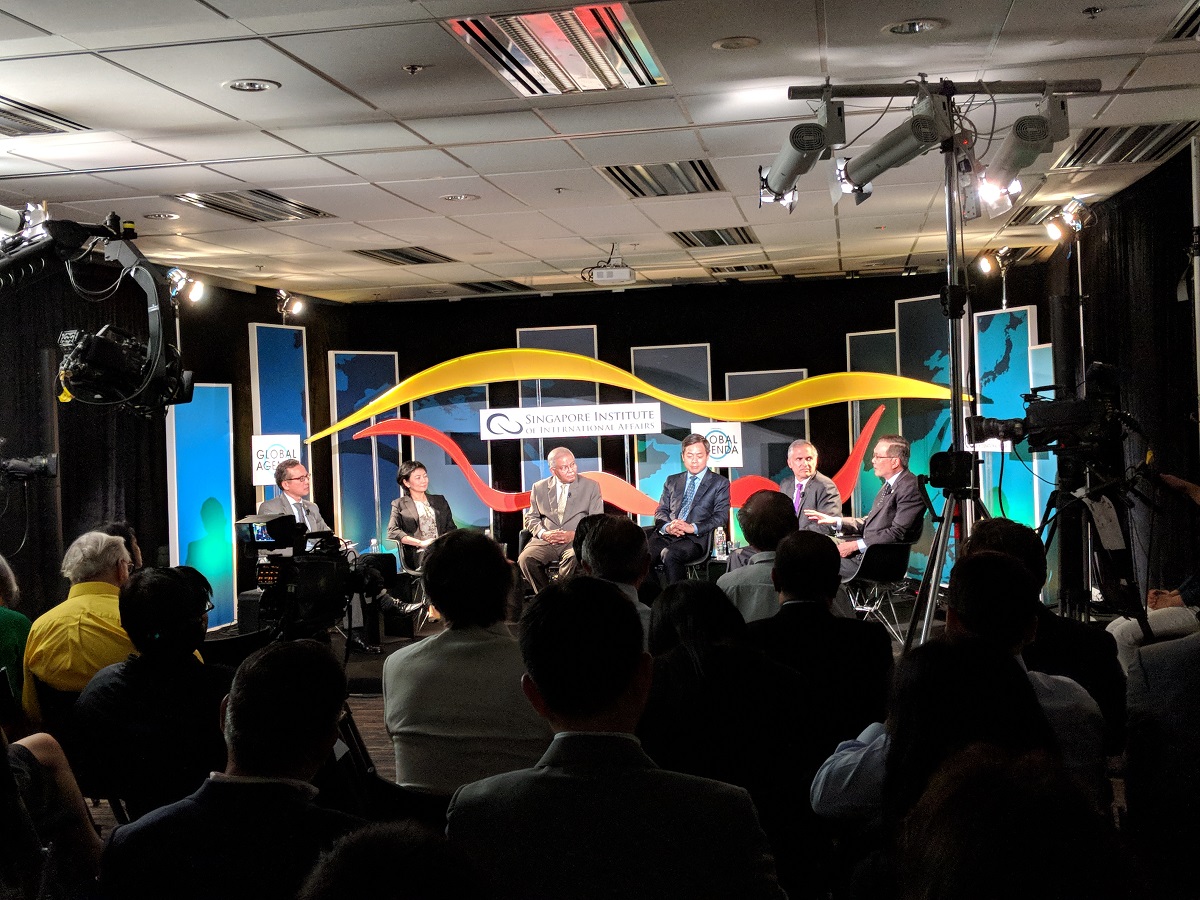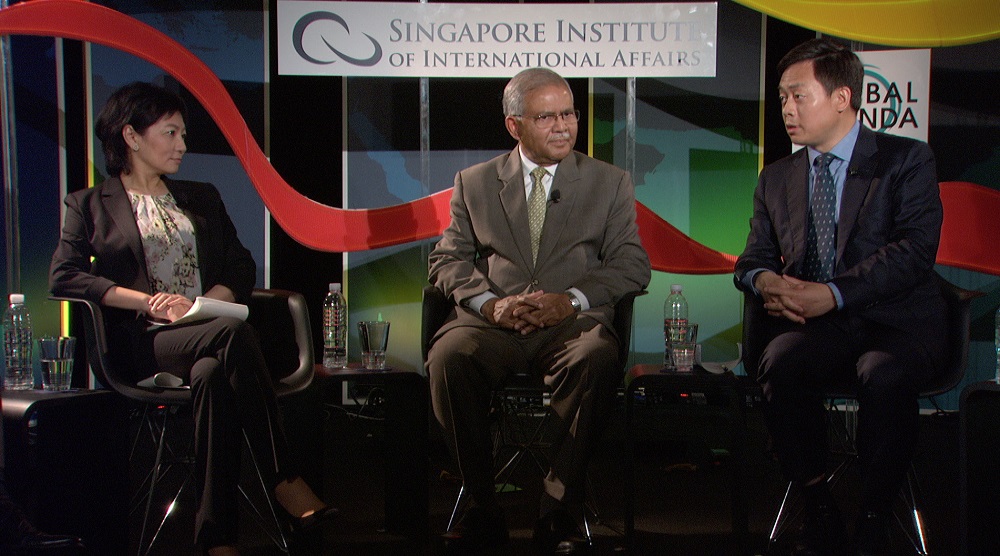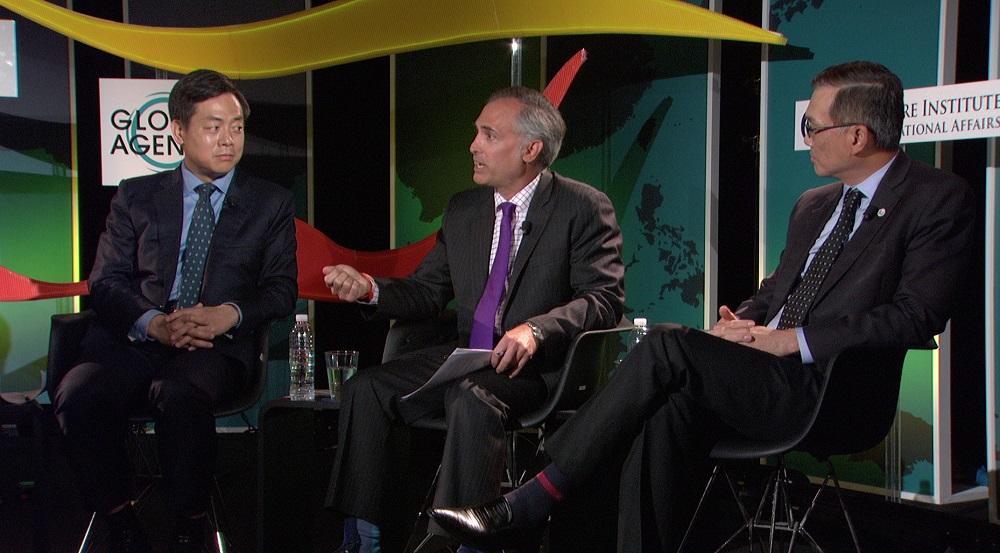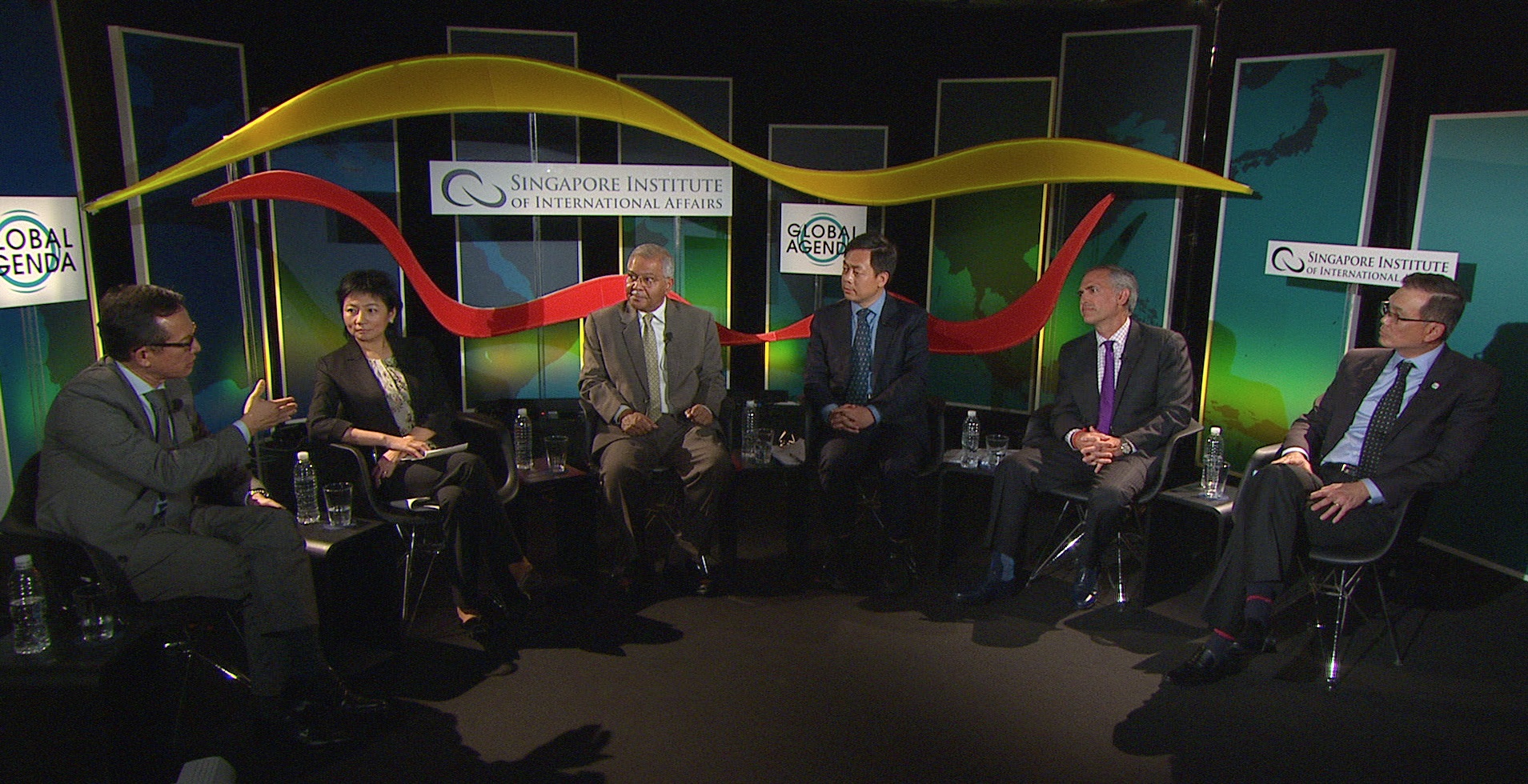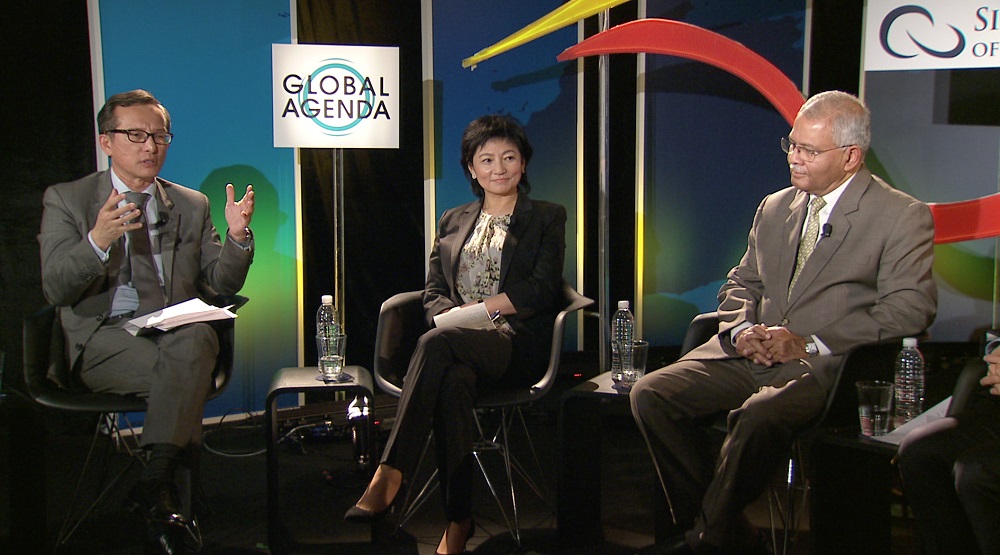The Belt and Road Initiative (BRI) has emerged as a cornerstone of China’s foreign policy, underscoring its growing global influence. Is the BRI benefiting all countries and the private sector, including non-Chinese companies? Does it represent a shift in the international order? NHK World and the SIIA co-organised a panel discussion on “Will the Belt and Road Initiative Forge a New Global Order?” on 6 March 2018.
The panel will be broadcast as an episode of NHK World’s Global Agenda on 10 June 2018. The discussion was moderated by Associate Professor Simon Tay, Chairman, SIIA.
Here’s some highlights from the session.
Left to right: Dr. Rumi Aoyama, Professor, The Research Institute of Current Chinese Affairs, School of Education, Waseda University, Amb. Ashok K. Kantha, Director of the Institute of Chinese Studies, Delhi and Former Ambassador of India to China, and Prof. Wang Yiwei, Jean Monnet Chair Professor, Director of Institute of International Affairs and Director of Center for European Studies, Renmin University of China
Mutual Benefit
The panellists agreed that there is definitely a need for infrastructure investment, not just in Asia, but globally. Prof. Wang Yiwei, Jean Monnet Chair Professor, Director of Institute of International Affairs and Director of Center for European Studies, Renmin University of China, argued that many countries have already acknowledged there is mutual benefit to the BRI; the inaugural Belt and Road Forum in May 2017 was attended by delegations from some 130 countries. Some countries, however remain apprehensive. India was notably absent from the Forum.
Commenting from the point of view of the private sector, Mr. Teo Eng Cheong, CEO (Singapore, Southeast Asia, North Asia), Surbana Jurong, said that the BRI is seen as an effective growth driver. Prof Wang also pointed out that China has been willing to finance projects in underdeveloped countries that would have difficulty attracting investment from other sources.
However, questions have been raised about whether BRI projects may end up as debt traps or white elephants for host countries. For example, China now holds a majority stake in Sri Lanka’s Hambantota port and Mattala airport, after a debt-for-equity swap following Sri Lanka’s inability to pay back Chinese loans. According to Mr. Steve Okun, Senior Advisor, McLarty Associates, a key question is how the BRI is perceived by host countries. “Is this an exercise in soft power or sharp power?”
Left to right: Prof. Wang Yiwei, Mr. Steve Okun, Senior Advisor, McLarty Associates, and Mr. Teo Eng Cheong, CEO (Singapore, Southeast Asia, North Asia), Surbana Jurong
Consultation and Cooperation
Amb. Ashok K. Kantha, Director of the Institute of Chinese Studies, Delhi and Former Ambassador of India to China, noted that India has not been able to endorse the BRI due to concerns about the China-Pakistan Economic Corridor (CPEC), a BRI project. The CPEC passes through disputed territory that is also claimed by India, and India feels there has not been adequate consultation on this issue.
The panellists compared the BRI to another recent Chinese-led initiative, the Asian Infrastructure Investment Bank (AIIB). The AIIB has become a transparent and multilateral effort, addressing concerns raised by the international community. The BRI has, in contrast, been largely bilateral and driven by Beijing.
“We have concerns about environmental sustainability and debt sustainability,” said Dr. Rumi Aoyama, Professor, The Research Institute of Current Chinese Affairs, School of Education, Waseda University, summing up the Japanese perspective. Japan has expressed willingness to cooperate with China on BRI, but only on a case-by-case basis.
“I think the BRI needs to be more open to local and international participants,” added Dr. Aoyama, quoting research by the Centre for Strategic and International Studies (CSIS) that indicates nearly 90 per cent of contractors in BRI projects are Chinese firms.
Left to right: Associate Prof. Simon Tay, Chairman, Singapore Institute of International Affairs, Dr. Aoyoma, Amb. Kantha, Prof. Wang, Mr. Okun, and Mr. Teo
Challenging the Global Order
The panellists agreed that China may not necessarily plan to overthrow the global order, but it is challenging the status quo. That said, the panel acknowledged the current international order is in need of reform, and it is reasonable for China to play a larger role.
According to media reports, the United States, India, Japan and Australia are in talks to establish a joint regional infrastructure scheme. However, Mr. Okun stressed that regional relations should not be seen as a binary choice between the US and China. Mr. Okun said the US should cooperate with India, Japan and Australia on infrastructure if it makes economic sense, but this should not be done simply as a move to counter Chinese influence.
Amb. Kantha noted that the BRI is increasingly coming across to some observers as an instrument for China’s ambitions. President Xi Jinping has positioned China as a champion of globalisation and multilateralism, and if this is the case then China must live up to this message.
“I hope, five years down the road, we will have a BRI that is more nuanced,” said Mr. Teo, pointing out that China is aware of the worries surrounding the BRI. China is learning to be sensitive to host country concerns, while also engaging with Singapore and other partners.
Left to right: Prof Tay, Dr. Aoyoma, and Amb. Kantha
